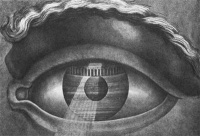Culture of Europe
From The Art and Popular Culture Encyclopedia
| Revision as of 13:15, 12 July 2009 Jahsonic (Talk | contribs) ← Previous diff |
Revision as of 13:17, 12 July 2009 Jahsonic (Talk | contribs) Next diff → |
||
| Line 3: | Line 3: | ||
| :''[[Europe]], [[culture]], [[world culture]]'' | :''[[Europe]], [[culture]], [[world culture]]'' | ||
| The '''[[culture]] of [[Europe]]''' might better be described as a series of [[overlapping]] cultures. Whether it is a question of West as opposed to East; Catholicism and Protestantism as opposed to Eastern Orthodoxy; Christianity as opposed to Islam; many have claimed to identify cultural fault lines across the continent. There are many cultural [[innovation]]s and movements, often at odds with each other, such as Christian proselytism or [[Humanism]]. Thus the question of "common culture" or "common values" is far more complex than it seems. | The '''[[culture]] of [[Europe]]''' might better be described as a series of [[overlapping]] cultures. Whether it is a question of West as opposed to East; Catholicism and Protestantism as opposed to Eastern Orthodoxy; Christianity as opposed to Islam; many have claimed to identify cultural fault lines across the continent. There are many cultural [[innovation]]s and movements, often at odds with each other, such as Christian proselytism or [[Humanism]]. Thus the question of "common culture" or "common values" is far more complex than it seems. | ||
| + | ==Philosophy== | ||
| + | |||
| + | European [[philosophy]] is a predominant strand of philosophy globally, and is central to philosophical enquiry in [[Americas|America]] and most other parts of the world which have fallen under its influence. [[Christian]] thought is a huge influence on many fields of European philosophy (as European philosophy has been on Christian thought too), sometimes as a reaction; the Greek schools of philosophy in [[Classical antiquity|antiquity]] provide the basis of philosophical discourse that extends to today. | ||
| + | |||
| + | Perhaps the most important single philosophical periods since the classical era were the [[Renaissance]], the [[Age of Reason]] and the [[Age of Enlightenment]]. There are many disputes as to its value and even its timescale. What is indisputable is that the tenets of ''[[reason]]'' and rational discourse owe much to [[René Descartes]], [[John Locke]] and others working at the time. | ||
| + | |||
| + | Other important European philosophical strands include: | ||
| + | {|width=100% | ||
| + | |-valign=top | ||
| + | |width=33%| | ||
| + | *[[Analytic philosophy]] | ||
| + | *[[Calvinism]] | ||
| + | *[[Christian Democracy]] | ||
| + | *[[Communism]] | ||
| + | *[[Conservatism]] | ||
| + | *[[Deconstructionism]] | ||
| + | *[[Empiricism]] | ||
| + | *[[Epicureanism]] | ||
| + | *[[Existentialism]] | ||
| + | *[[Fascism]] | ||
| + | *[[Humanism]] | ||
| + | |width=33%| | ||
| + | *[[Idealism]] | ||
| + | *[[Liberalism]] | ||
| + | *[[Logical positivism]] | ||
| + | *[[Marxism]] | ||
| + | *[[Materialism]] | ||
| + | *[[Monarchism]] | ||
| + | *[[Nationalism]] | ||
| + | *[[Perspectivism]] | ||
| + | *[[Platonism]] | ||
| + | *[[Positivism]] | ||
| + | *[[Postmodernism]] | ||
| + | |width=33%| | ||
| + | *[[Rationalism]] | ||
| + | *[[Romanticism]] | ||
| + | *[[Scepticism]] | ||
| + | *[[Scholasticism]] | ||
| + | *[[Social Democracy]] | ||
| + | *[[Socialism]] | ||
| + | *[[Stoicism]] | ||
| + | *[[Structuralism]] | ||
| + | *[[Thomism]] | ||
| + | *[[Utilitarianism]] | ||
| + | |} | ||
| == See also == | == See also == | ||
Revision as of 13:17, 12 July 2009
|
Related e |
|
Featured: |
The culture of Europe might better be described as a series of overlapping cultures. Whether it is a question of West as opposed to East; Catholicism and Protestantism as opposed to Eastern Orthodoxy; Christianity as opposed to Islam; many have claimed to identify cultural fault lines across the continent. There are many cultural innovations and movements, often at odds with each other, such as Christian proselytism or Humanism. Thus the question of "common culture" or "common values" is far more complex than it seems.
Philosophy
European philosophy is a predominant strand of philosophy globally, and is central to philosophical enquiry in America and most other parts of the world which have fallen under its influence. Christian thought is a huge influence on many fields of European philosophy (as European philosophy has been on Christian thought too), sometimes as a reaction; the Greek schools of philosophy in antiquity provide the basis of philosophical discourse that extends to today.
Perhaps the most important single philosophical periods since the classical era were the Renaissance, the Age of Reason and the Age of Enlightenment. There are many disputes as to its value and even its timescale. What is indisputable is that the tenets of reason and rational discourse owe much to René Descartes, John Locke and others working at the time.
Other important European philosophical strands include:
See also
See also
- European Capital of Culture
- European cuisine
- Europeanisation
- Westernization
- Battles of macrohistorical importance involving invasions of Europe
- Europalia
- Romano-Germanic culture


